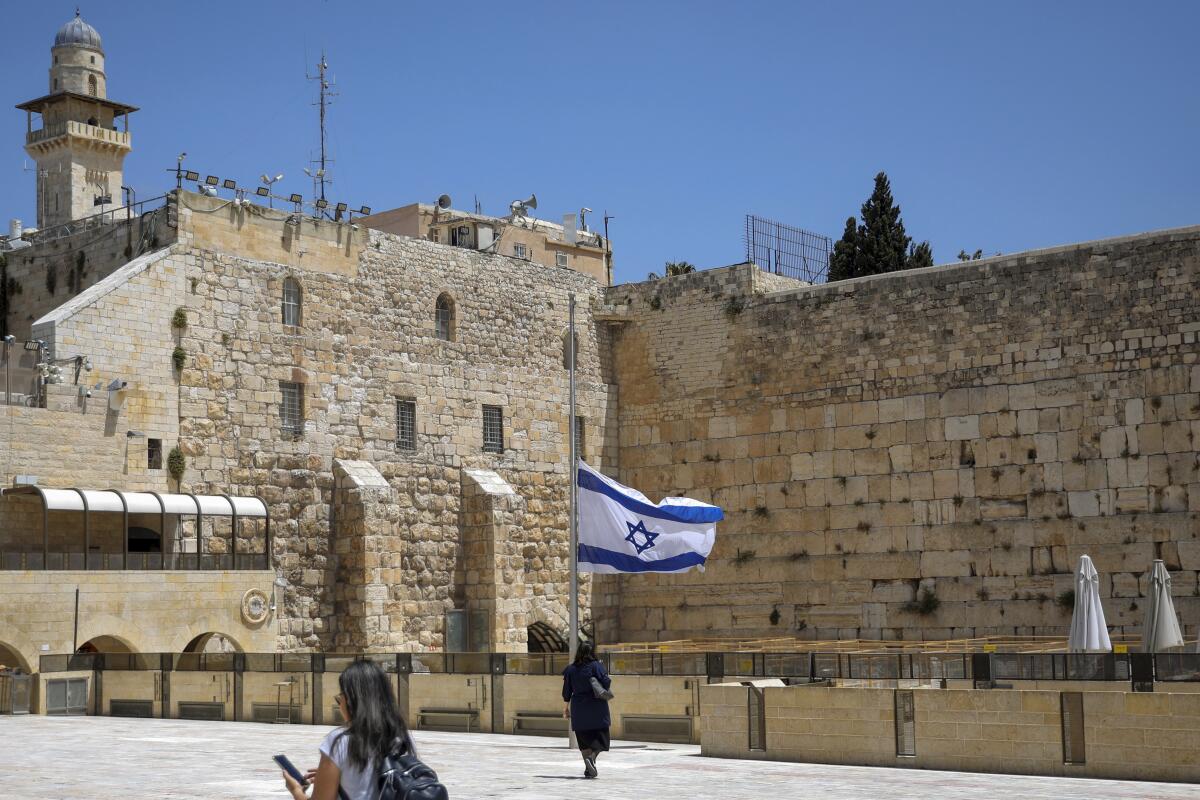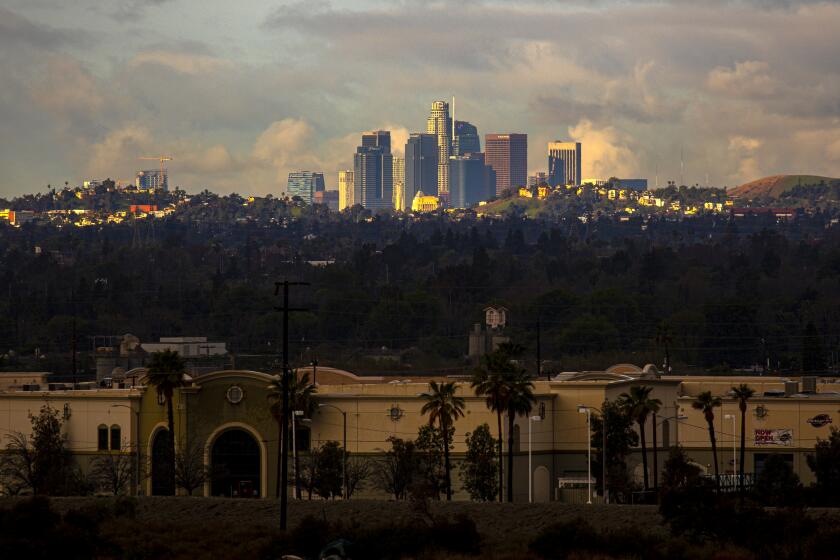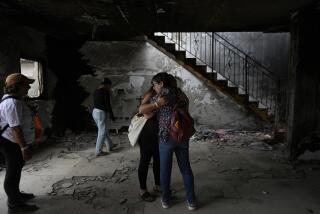Officials scrutinized as Israel mourns 45 killed at festival

JERUSALEM — Officials came under growing scrutiny Sunday for ignoring warnings about safety lapses at one of Israel’s most visited holy sites, as the country mourned 45 ultra-Orthodox Jews killed in a stampede at a festival there.
The disaster at Mt. Meron also heated up the debate over the role of the ultra-Orthodox minority in Israel and the refusal of some of its leaders to acknowledge the authority of the state. The holiday festival had drawn some 100,000 people, most of them ultra-Orthodox Jews, after powerful ultra-Orthodox politicians reportedly pressured Prime Minister Benjamin Netanyahu and others to lift attendance restrictions.
At least 10 children and teens younger than 18 were among those killed, with two families each losing two children, according to a partial list of published names. The list included four Americans, a Canadian and a man from Argentina. The youngest victim was 9 years old.
On Sunday, a group of retired police commissioners called on the prime minister to launch an independent commission with wide-ranging powers to investigate. The body would have the authority to probe senior politicians and decision-makers, going beyond a Justice Ministry inquiry now underway that is looking into possible misconduct by police officers at the site.
L.A.’s official stance on the past has typically been both grander and more opaque.
The increasingly acrimonious blame game comes during a political power struggle between Netanyahu and former allies-turned-foes bent on toppling him. After inconclusive elections in March, Netanyahu’s chances of forming a ruling coalition and staying in power seem to be waning. His ultra-Orthodox political allies would feature prominently in any Netanyahu-led government.
The stampede, the deadliest civil disaster in Israel’s history, took place early Friday during a Lag BaOmer holiday festival on Mt. Meron in northern Israel. The site is believed to be the burial place of prominent second century sage Rabbi Shimon Bar Yochai. The annual springtime celebrations are marked by the lighting of large bonfires, singing and dancing.
This year’s festivities went ahead despite national coronavirus restrictions that prevent assemblies of more than 500 people outdoors, and longstanding criticism by police and health authorities in recent years about the safety of mass assemblies at the site.
A common complaint heard in the aftermath of the stampede was that no single authority was in charge of managing the festival safety.
The site is ostensibly managed by the Religious Services Ministry’s National Center for Holy Places.
But Eli Ben Dahan, a former deputy religious services minister, said in an interview with Kan radio, “there’s no one person about whom it can be said that they run the event, that everything falls on their shoulders.” Mt. Meron is divided up among an assortment of religious trusts, he explained, and called for it to be brought under a single administrative authority.
“I don’t think that a place in the state of Israel should be extraterritorial, that the state doesn’t have any control over it, doesn’t manage it, isn’t responsible for it,” he said.
Several retired police commanders told Israeli TV channels over the weekend that during their years on the job they came under intense political pressure to accede to the wishes of religious politicians. They said they had no authority to enforce safety regulations, such as limiting attendance.
Yosef Schwinger, head of the national holy places center, said in an interview just hours before the stampede that Interior Minister Aryeh Deri of the ultra-Orthodox Shas party “fought like a lion” at a Cabinet meeting to allow the festival to take place unimpeded. Schwinger said Deri deserved credit for “saving” the Lag BaOmer celebration from a more limited format.
Experts have long warned the site was inadequately equipped to handle a large number of visitors on the holiday, and that the existing state of infrastructure was a safety risk.
The warnings became reality early Friday when thousands of people leaving one area of the site funneled through a narrow passageway descending the mountain. A slick slope and stairs caused people to slip and fall, resulting in a human avalanche that killed 45 people and and injured at least 150.
By Sunday morning, health officials had identified all those killed. All but one of the dead were buried in hurried funerals, with a break during the Jewish Sabbath between sundown Friday and sundown Saturday. One person who attended Thursday night’s event was still missing.
Israel marked a national day of mourning Sunday. Flags flew at half-staff in Israel and its diplomatic missions abroad, and sports and cultural events were canceled.
The tragedy comes at a sensitive time for Netanyahu, who has struggled to assemble a government coalition in the weeks since the March 23 parliamentary elections.
His deadline for forming a new government is Tuesday, but he may request an extension from Israel’s figurehead president of two weeks.
Israel has held four elections in two years, the most protracted political crisis in the country’s history. Netanyahu’s staunchest coalition partners are the two ultra-Orthodox parties, who have wielded an outsized influence in Israeli politics as kingmakers in governing coalitions.
Should he fail to form a government, a loose coalition of his opponents and former allies may have an opportunity to form a government of their own.
Netanyahu is on trial on charges of fraud, breach of trust and accepting bribes in three cases. He has denied any wrongdoing and has refused to step down from office while under indictment.
More to Read
Sign up for Essential California
The most important California stories and recommendations in your inbox every morning.
You may occasionally receive promotional content from the Los Angeles Times.











